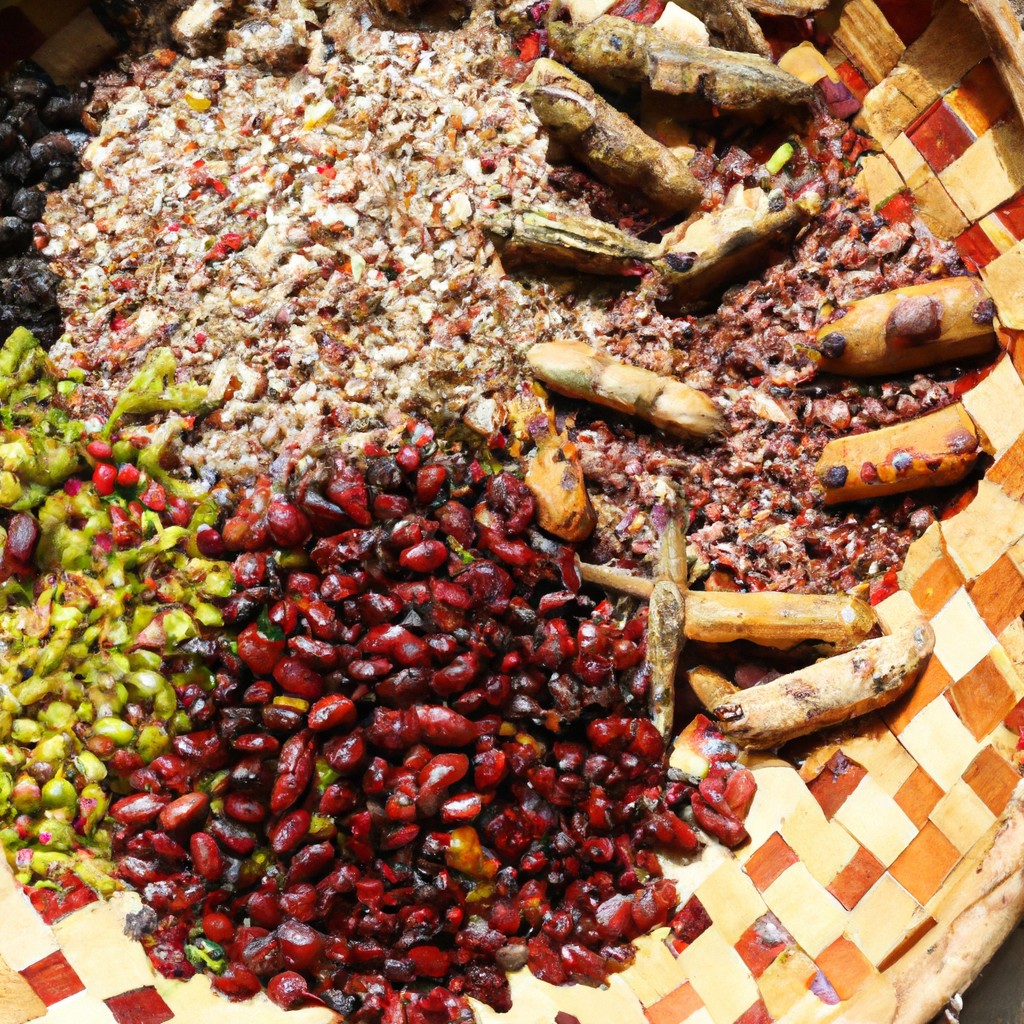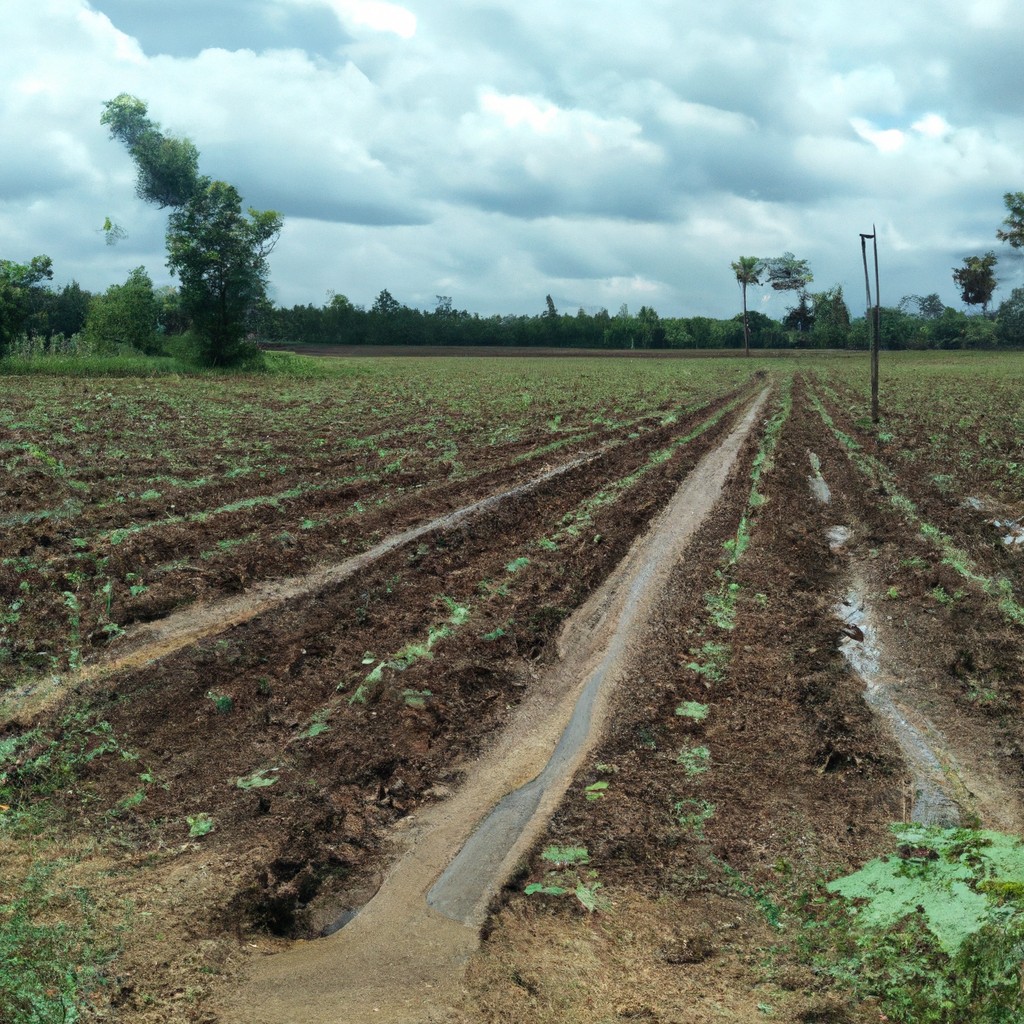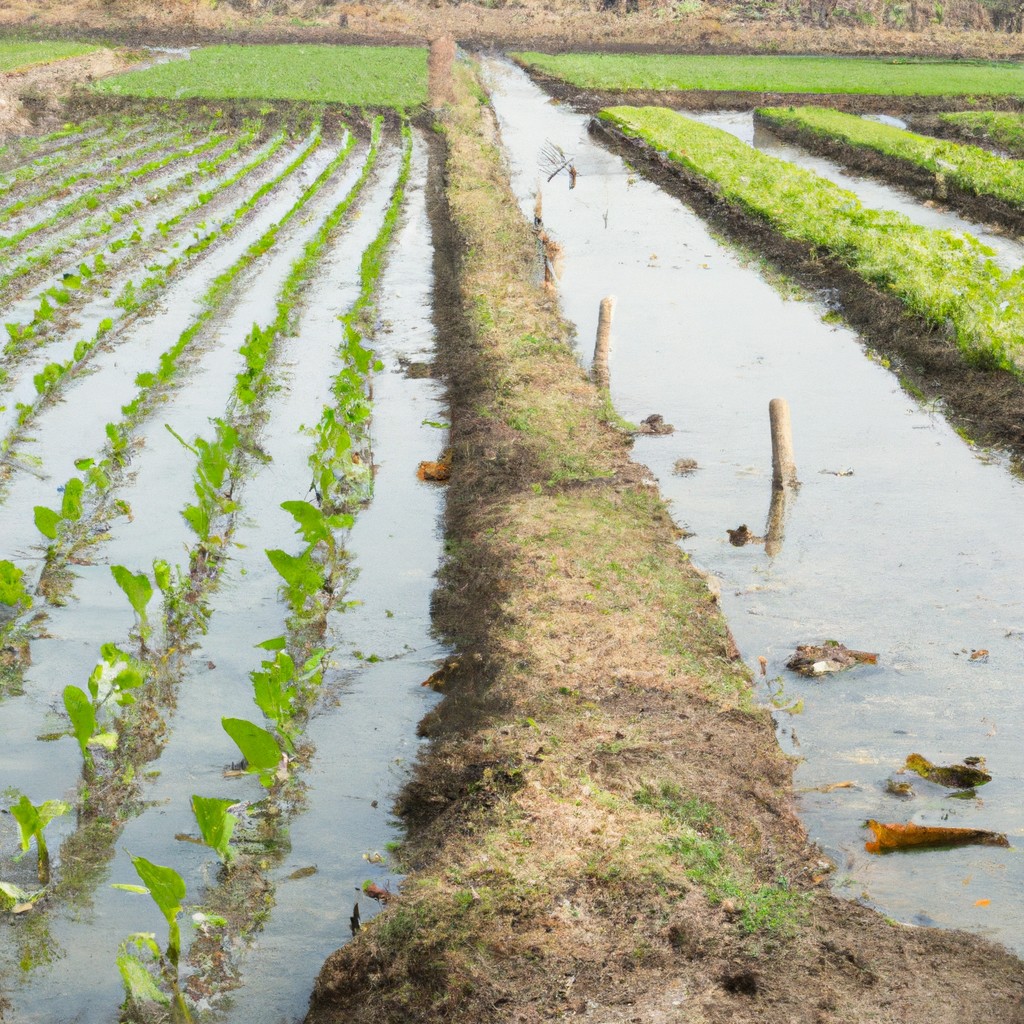Organic farming is a practice that cultivates crops without synthetic chemicals, fostering a healthier ecosystem and producing naturally nutritious food.
Look Inside:
Organic Farming Methods

Organic farming shuns synthetic inputs, nurturing plants and animals in harmony with nature. It’s like cooking from scratch, using natural ingredients instead of store-bought mixes. Farmers become connoisseurs of biodiversity, creating a balanced ecosystem where crops and livestock thrive.
Crop rotation is the bread and butter of this approach, keeping the soil as lively as a chat around the dinner table. By switching up what’s grown where, nutrients get a chance to replenish. Think of it as giving the land a well-deserved break on a tropical vacation, returning re-energized for the next season.
Composting is another cornerstone, recycling organic waste into black gold for plants. Imagine nature’s own makeover, transforming leftovers into a feast for fields. This rich additive introduces beneficial microorganisms, which keeps soil healthier than a morning jog.
Natural pest management is also central, favoring the “set a thief to catch a thief” philosophy. Beneficial insects, like ladybugs playing the sheriff in a wild west town, police harmful pests naturally. Companion planting is another trick up the sleeve, where specific plants are paired together like best friends, deterring pests and diseases.
Cover crops, akin to a warm protective blanket, shield the soil from erosion and lock in moisture, ensuring the soil remains as snug as a bug. These unsung heroes also double as a living fertilizer, drawing nitrogen from the air and storing it in the ground, ready for the next primary crop.
In a nutshell, organic farming is like weaving a rich, living tapestry, with each thread contributing to the strength and beauty of the whole. It respects the rhythms of nature, nurturing the earth as a loving gardener tends to a flourishing garden.
Soil Management
Healthy soil is the backbone of any flourishing organic farm. Picture it as the kitchen for your plants; it’s where they get their nutrients. To keep that kitchen well-stocked, organic farmers rely on practices that sustain the soil’s fertility. Instead of synthetic fertilizers, they turn to compost, manure, and cover crops.
Compost adds life to the soil by providing beneficial microorganisms that help break down organic material, releasing nutrients that plants crave. Manure, when properly processed, is like a nutrient-rich meal for crops, supporting their growth. Both these practices mimic nature’s way of recycling and maintaining soil health.
Moreover, cover crops are the unsung heroes of soil conservation. They’re like a cozy blanket, protecting the soil from erosion during off-seasons. They also help fix nitrogen, a vital nutrient for plants, while their decay enriches the soil even further.
By prioritizing such practices, organic farmers create a virtuous cycle. Healthy soil leads to strong plants, which leads to bountiful yields, and around we go. And just like that, the soil isn’t just dirt under our feet; it becomes the starting point for everything that grows.
Pest Control in Organic Farming
Traditional pesticides are the usual suspects behind The Nightmare on Elm Street for bugs and pests. But in organic farming, we put down the horror movie script and pick up a guide to nature’s pest control squad.
Think of beneficial insects as the bodyguards of crops. Ladybugs and lacewings aren’t just pretty faces; they gobble up aphids like candy. Farmers invite these voracious helpers by planting flowers that roll out the red carpet for them.
Farmers also double as clever strategists. They play matchmaker with plants, setting up companion planting. It’s like a blind date where herbs like basil whisper sweet nothings to keep pests away from tomatoes.
Then there’s crop rotation – the agricultural version of musical chairs. Pests settling in for a feast find themselves with an empty plate when their favorite plants move to a new spot. It’s a game of pest confusion, and the farmer always wins.
Harnessing the power of nature doesn’t stop there. Enter the unsung hero: the humble cover crop. These plants are not just space fillers; they’re like secret service agents sheltering soil and confusing pests.
Biological control is like drafting in a SWAT team. Introducing natural predators, such as nematodes, can target specific pests without collateral damage to the beneficial bugs on the block.
Organic farmers pack a punch using a one-two combo of innovation and natural remedies. The approach is gentle on the earth but tough on pests.
Environmental Impact of Organic Farming
Organic farming practices play a pivotal role in nurturing our planet. With a focus on maintaining soil health, these practices reduce pollution by saying “no thanks” to synthetic pesticides and fertilizers. This also means cleaner waterways, as these harmful chemicals aren’t washed into our rivers and oceans.
Healthy soil equals healthy ecosystems. By encouraging a diversity of organisms both above and below the earth’s surface, organic farms become thriving habitats for wildlife. This includes pollinators like bees and butterflies, vital for the success of crops and wild plants alike.
Carbon footprint takes a backseat in organic farming as well. Organic soils, rich in carbon-sequestering organic matter, become a vault for locking away greenhouse gases. Think of it as nature’s own savings account for carbon, keeping it out of the atmosphere.
Let’s not forget the reduced energy use. Since organic farming is labor-intensive, it often uses less energy. Without the need for manufacturing synthetic inputs, these farms are like the quiet person at a party who still knows how to have a good time – low-key but effective.
Finally, preserving the scenery. Organic farms often promote biodiversity in plant cultivation, reducing the vulnerability of crops to disease and pests. This means not putting all our eggs in one basket and enjoying a variety of foods our environment offers. It’s like a smorgasbord that nature invites us to, season after season.
Organic Farming’s Role in Global Food Security
Organic agriculture can serve as a lynchpin in sustaining the world’s burgeoning population through diverse, reliable food production. By avoiding synthetic fertilizers and pesticides, this farming style nurtures soil health, resulting in resilient crops capable of withstanding adverse conditions.
Healthy soils act like a pantry with well-stocked shelves, providing plants with the necessary nutrients to grow strong and productive. This resilience is critical in regions beset by climate instability, where conventional farming methods may falter.
Moreover, organic practices emphasize crop diversity, which spreads risk and ensures a steadier supply of food. This diversity also promotes dietary variety, which is essential for comprehensive nutrition.
Integrated pest management, a cornerstone of organic farming, minimizes crop losses without harming the environment, safeguarding yields, and supporting consistent food availability.
By fostering local ecosystems, organic farming offers a safety net for surrounding communities, contributing to their food sovereignty. Locals consuming what they grow sets the table for sustainable development and reduced dependence on unpredictable global supply chains.
In sum, as part of the broader movement for sustainable agriculture, organic farming’s contribution to food security is significant, bolstering the capacity to feed communities without sacrificing the health of our planet.




